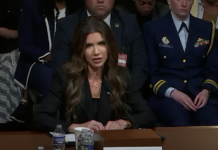
(GA Recorder) — A sweeping mental health bill meant to lift Georgia from near the bottom when it comes to access to treatment is on its way to the governor’s desk.
The bill, led by Republican House Speaker David Ralston, overcame pushback from health insurers, intense opposition from ultra-conservatives who packed hearings on the measure, and false claims the bill would protect pedophiles.
And in an era of hyper-partisanship intensified by election-year politics, the push for improvements to mental health and substance use disorder treatment rallied lawmakers from both parties behind the measure. In final votes Wednesday, the bill unanimously passed both chambers to applause and even a few tears.
“We are reminded again today that truth is a powerful force,” said Ralston, who made the bill his top priority for this year’s legislative session and who became emotional when announcing the Senate overwhelmingly backed the measure.
Georgia ranks 48th when it comes to access to mental health care, according to Mental Health America. The COVID-19 pandemic also revealed treatment gaps and worsened a provider shortage across the state, attracting bipartisan energy ahead of the session. Predictions that this would be the “year for mental health” came true.

The result is a bill that steps up enforcement of a 14-year-old federal law requiring health insurers to treat behavioral health benefits on par with physical care. Advocates say a compromise version of the measure unveiled Wednesday will put medical professionals – and not insurers – in charge of what care should be covered. The parity rules take effect in July.
“We can say emphatically that, upon the passage of this and the signing by the governor, that the state of Georgia has parity,” said Rep. Todd Jones, a South Forsyth Republican who co-sponsored the bill and has highlighted his own family’s struggles to find consistent behavioral health treatment for his son.
When Ralston was asked Wednesday if he had a message for insurance companies going forward, he said this: “Do the right thing and play by the law.”
The measure does much more, though. It requires that a certain percentage of money in public-funded insurance programs goes to patient care and not administrative costs, and creates a service cancelable loan program designed to help grow the state’s behavioral health workforce in underserved areas of the state.
“We acknowledge the fact that we can have all the coverage in the world for mental health in our state, but if we don’t have the workforce where this service can be offered in every corner of our state, we’re still not accomplishing anything,” said Sen. Brian Strickland, a McDonough Republican who carried the bill in the Senate.
The proposal also sets up grants for court-ordered outpatient treatment programs and accountability courts and steps up mental health training for law enforcement through a state training center.
And the bill was tied to a Senate proposal supporting local co-responder teams that dispatch a law enforcement officer and a behavioral health professional to crisis calls. Nine areas of the state, such as Savannah and Forsyth County, are already deploying such co-responder teams.
“We believe this will help to actually save Georgia taxpayer dollars because we will reduce the number of people with mental health episodes in our prisons,” said Rep. Park Cannon, an Atlanta Democrat who said defining a “behavioral health co-responder” in state code was a long-awaited change.
The three Republicans who opposed the bill earlier and helped ignite loud pushback in the Senate voted in favor of it Wednesday. Rep. Philip Singleton, a Sharpsburg Republican, told conservative activists this week many of the parts that troubled him were no longer in the bill. Singleton had objected to references to the World Health Organization and the now-deleted change to the involuntary commitment criteria, among other things.
The bill is the result of a reform-minded commission created in 2019, and advocates and lawmakers have often referred to this year’s measure as a first step in a multi-year effort. The commission will continue to meet and push forward recommendations.
Sen. Michelle Au, a Johns Creek Democrat, called this year’s bill “transformative” and a framework for the work yet to be done.
“HB 1013 is a bipartisan commitment to the people of Georgia that we recognize care for mental health and substance use disorder is as essential as treatment for medical and surgical care,” Au said. “It’s a recognition that we can and will do better, and it’s an acknowledgment that this bill, while significant, is just the first step in our commitment to the work that lies ahead.”







